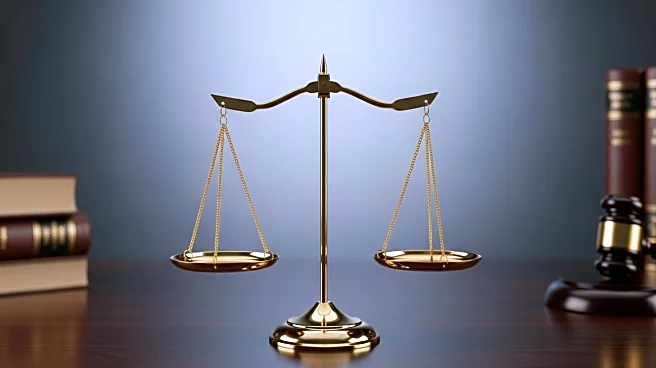What's Happening?
Supreme Court Justice Amy Coney Barrett has publicly asserted her independence from President Trump, emphasizing her role as a justice who does not align with any political figure. In a recent interview, Barrett stated that she is 'nobody's justice,' distancing herself from the notion of being a swing voter. Barrett, who was nominated by Trump, has occasionally diverged from the conservative bloc in key decisions, including voting against Trump's attempt to freeze foreign aid. Her approach to the law is guided by a long-term perspective, considering the lasting impact of court decisions across multiple presidencies. Barrett's comments come as she promotes her memoir, which discusses the court's overturning of Roe v. Wade.
Why It's Important?
Barrett's stance highlights the ongoing debate about the independence of Supreme Court justices and their role in shaping U.S. law and policy. Her decisions have significant implications for the balance of power within the court and the broader political landscape. By distancing herself from Trump, Barrett underscores the importance of judicial independence, which can affect public trust in the judiciary. Her actions may influence future court decisions and the perception of the Supreme Court as a non-partisan institution. This development is crucial for stakeholders who rely on the court's rulings to navigate legal and political challenges.
What's Next?
Barrett's continued independence may lead to further scrutiny of her decisions, especially those that diverge from conservative expectations. As she remains a pivotal figure in the court, her future rulings will be closely watched for their impact on key issues such as executive power and civil rights. The publication of her memoir may also spark discussions about the court's role in contemporary society and its approach to precedent-setting cases.
Beyond the Headlines
Barrett's position as a mother with school-age children adds a unique dimension to her role as a justice, potentially influencing her perspective on family-related legal issues. Her background as a practicing Catholic and former member of an anti-abortion group may also shape her views on social and ethical matters, contributing to the court's evolving dynamics.








